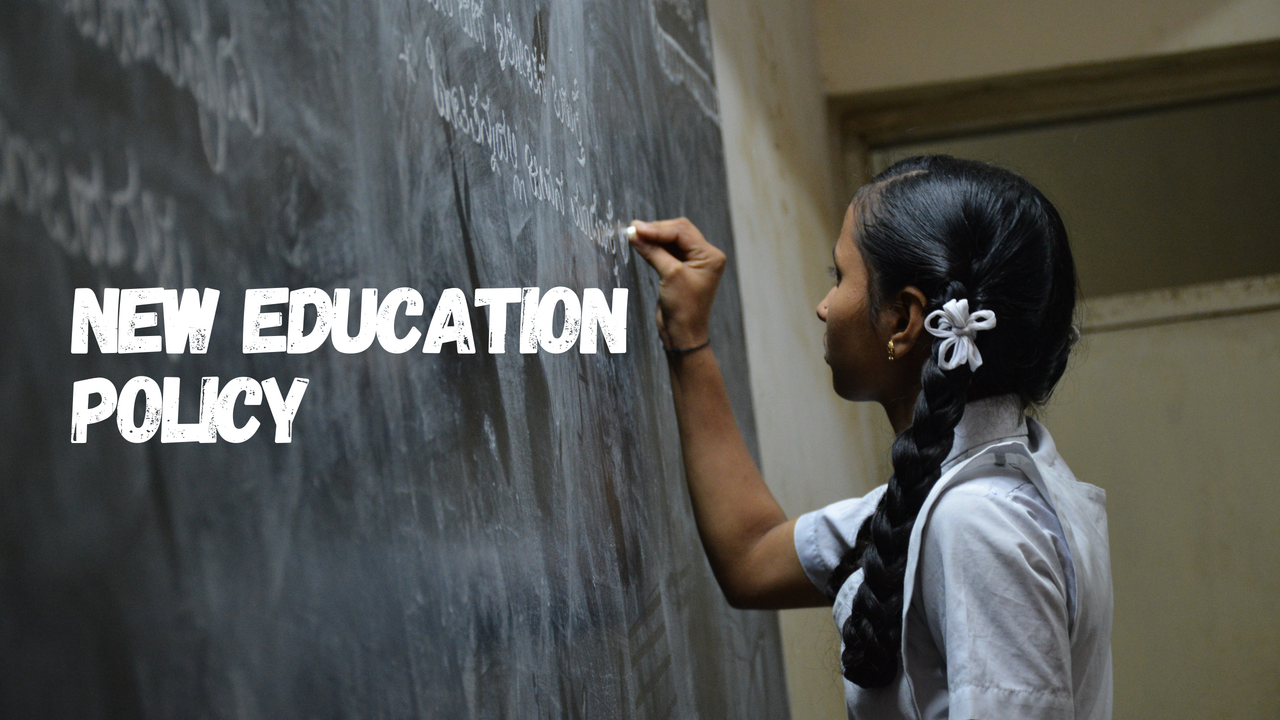Dubbed by the Modi government as a paradigm shift, the New Education Policy 2020 (NEP) has left education experts worried who say that it is non-inclusive; It falls short to accommodate the aspirations and needs of the Muslim community, a minority who constitute 14% of the population but their representation in higher education enrolment straddles at around 5%. The word minority is only mentioned twice in the new policy document of 62 pages. ‘Muslim’ is totally missing.
The apprehensions are visible among the community leaders, academicians and student activists who worry that the new policy may further entrench marginalisation of the community that is bearing the brunt on all fronts.
Retired IAS officer Azeezullah Baig pointed out that there seemed to be an ‘ideological slant’ in the framing of the NEP. “It appears as though the union government is taking the education policy in a particular direction,” he told The Cognate.
The National Education Policy 2020(NEP), which the Union Cabinet approved in July last year replaces the previous National Policy on Education, 1986 with the aim to transform India’s education system by 2040.
Earlier this week, Baig met the education minister of Karnataka in Bangalore to express his concern over the policy that according to him runs against the provisions of the constitution that ensures protection of the rights of minorities.
Student activists are equally aghast at the new policy as they have been campaigning for its rollback. The Campus Front of India (CFI), a student group of Muslims mainly active in the south, has organised protests across Karnataka against the implementation of the policy.
While speaking with The Cognate, the State secretary of CFI Karnataka Sarfaraz Gangavathi underlined how political and ideological affiliations of the members of the draft committee can have an influence on the policy.
“M.K Sridhar and Rajendra Gupta are among the 9-member committee who drafted the NEP. M.K Sridhar is the ex-vice president of ABVP and Rajendra Gupta was the architect of the BJP manifesto in the 2009 and 2014 elections,” he said.
“In addition to the 22 Official languages, the policy mentions foreign languages like Portuguese, Thai and Japanese. The Arabic language has been completely ignored despite the large number of people who learn it, especially among the Muslim community,” he said.
Though the education minister recently stated that there will be no restriction in choosing any language including Arabic, Sarfaraz believes that it is important for it to be incorporated within the policy. “Policy is important. How can we rely on a statement?” he asked.
“The NEP intends to Promote Sanskrit and Hindi. In the 66-Page draft, Sanskrit is mentioned as the soul of all languages. It is a clear instance of saffronisation,” he added.
He pointed out that the policy has ignored Medieval history and focused on ancient and modern history. “There is no mention of medieval history. There have been many contributions of Muslims during that period. Contributions of philosophers like Basavanna who thrived during the medieval era have also been removed. The period that talks about the rise of Buddhism and Jainism have also been skipped,” he said.
Razik Basrur, a law student who participated in the protest against the NEP in Bangalore spoke to The Cognate. He believes that the NEP is a step towards the ‘saffronisation’ of history. “There are instances of chapters pertaining to Muslim contributions and the Mughal era being removed from textbooks. The NEP will further this phenomenon,” he said.
“This will automatically cause students to falsely perceive Muslims as ‘outsiders’ and pave the way for the central government to implement laws like NRC and CAA,” he added.
Authorities intervened and beat up students who were protesting against the NEP last month. “6 were severely injured, 16 were admitted to the hospital and about 300 were detained,” Razik said. He too sustained minor injuries, fainted at the protest site and was subsequently detained.
Another protest was held by local Kannada organisations on October 2.
Experts who have criticised the policy for not being inclusive enough say the policy lacks information on how to bridge faith-based schooling with mainstream education as it does not give details on the functioning of religious educational institutions. Education in Ashrams and Ashram-shalas finds mention but does not say much on Madrasa education. The policy fails to explain ways to address the social-economic-cultural inequalities that beset the country.
NEP once again links grants with NAC and output measurement approach and thus poorly funded institutions will again be phased out.
Moreover, the policy aims to cement the centralisation of the administration of education which is another source of worry for activists.
The meeting of Higher Education Minter Dr C.N.Ashwath Narayana with a delegation of members from the Muslim community failed to brush aside the fears of community and student activists even as he attempted to reassure the delegation ‘not to worry’.
“We will wait and watch,” said Baig, who was part of the delegation.
Related
Rushda Fathima Khan is the Staff Reporter for The Cognate.














































